Pendulum Slip Resistance Testing
by Quantum Site Services
Who We Are
Quantum Site Services Ltd. offer a Floor Testing Service and with our wealth of experience and valuable knowledge of different flooring systems allows us to offer an independent expert Pendulum Slip Test service & advice to contractors, property owners and end users.
Quantum Site Services Ltd offer a highly mobile BS7976-2 slip testing service across the UK. All of our Pendulum Slip Resistance equipment is modern and regularly calibrated by Cooper who are a UKAS accredited laboratory and the equipment is manufactured in the UK. All of our one site Pendulum Slip Resistance Testing is carried out in line with The HSE guidelines.
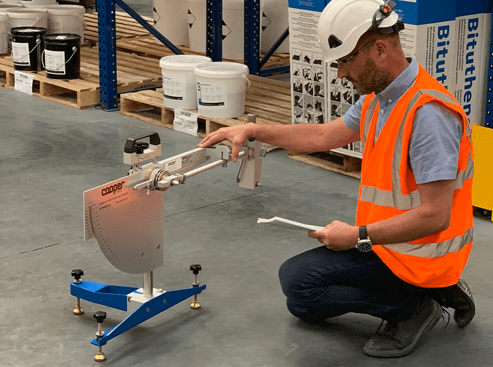
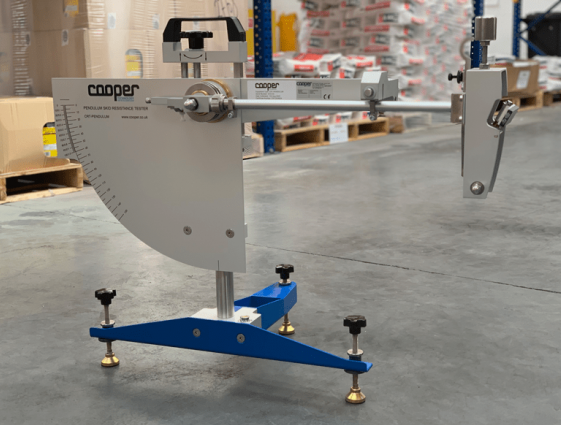
On Site Slip Testing
We carry out a non-intrusive Pendulum Slip Testing service throughout the UK.
We have the ability to carry out tests for any type of surface in any type of environment or industry. Whether you have a Warehouse, Factory, Kitchen, Toilet, Wet Room, Office Building, Swimming Pool Surround, Pavements to name but a few.
All of our consultants use the latest Pendulum Slip Resistance Test equipment manufactured in the UK and we fully trained and qualified to test to BS7976-2. Rest assured we issue test reports within 24 hours after completion. The in-situ Pendulum Slip Test will be carried out with the utmost confidence and integrity
What is a Pendulum Slip Test?
The Pendulum test is the British Standard method of measuring slip resistance. And is the Health and Safety Executives preferred method of testing.
In these tests the HSE recommends a minimum score of 36 PTV or more for floor coverings to be used in public places in both wet and dry conditions.
All of our PTV tests are conducted in accordance with the current UK Slip Resistance Group (UKSRG) and HSE guidelines. The test replicates the heel of a foot (there are different attachments to measure a rubber sole (95 Slider) to a bare foot (55 Slider) slipping on tiles in both wet and dry conditions. This represents a more accurate simulation of real-world conditions. The results are known as Pendulum Test Values (PTV) and determine the level of potential slip risk. These PTV values are classified as:
- 0-24 High Risk
- 24-35 Moderate Risk
- 36+ Low risk.
What does a Pendulum Test involve?
The Test consists of the pendulum swinging across the surface of the tile. Here are the steps:
- The Pendulum Equipment itself will be zeroed (a test swing to ensure that the reading is accurate, equipment is still working, the surface is level and form a basis on all tests.)
- It is then swung across the face of the tile and a reading is measured. The pendulum is swung 3 times – then a further 5 times with the average reading of the last five swings taken to determine the PTV.
- The test is then performed twice more – with the tile in different directions – to fully test the slip resistance across the tile. This is because the risk of slipping on a tiled floor isn’t set to one direction.
- When the test is complete with a dry tile – the test is repeated with water applied to the tiles surface. The machine is zeroed every time to ensure a uniform test and the tile is moved into the same three positions. Again with the average reading taken as the result to ensure fairness. This will give a second reading and determine a PTV on the slip resistance of the tile in wet conditions
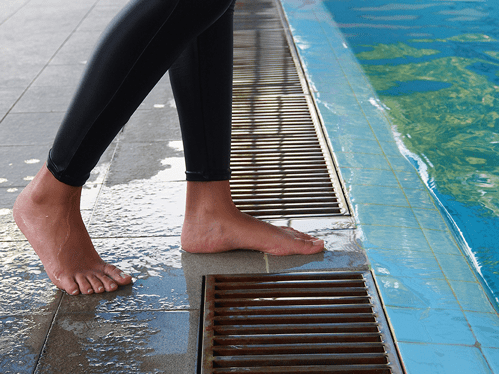
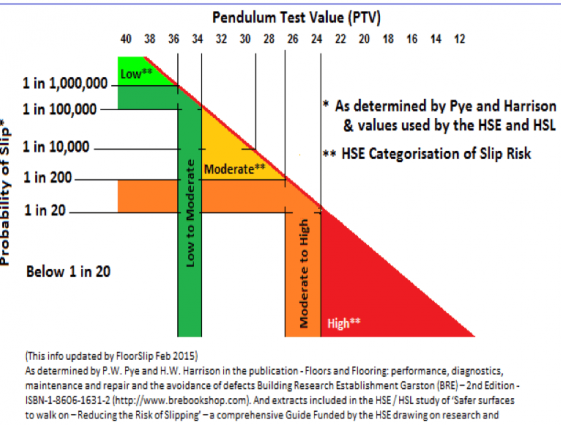
R (Ramp) ratings explained
Whilst the PTV doesn’t entirely determine the R rating it is a useful guide. The ratings start with R9 (R1 – 8 don’t exist therefore R9 is the lowest and has the highest risk of slipping)
R rating PTV
R9 11-18
R10 18-34
R11 34-54
R12 51-70
R13 70+
This shouldn’t put you off tiles with a lower R rating as they are perfectly fine in rooms such as a bedroom or living room – and don’t fall into the trap of going directly to R13 for your bathrooms and Kitchens as these tiles are usually for swimming pools, wet rooms or outdoors that will get a high volume of water and slip risk.
R11 and R12 are ideal for the majority of bathrooms and kitchens with a risk of spills and water contact
BS 7976-2
We strictly follow the methods procedures & guidelines within BS 7976-2 at all of our in-situ Pendulum Slip Resistance Testing contracts.
BS 7976-2 is the preferred methodology for slip testing and is endorsed by The HSE which consists of using a Portable Pendulum Skid Tester of which is we prefer to be manufactured in the UK Recognised by the Health and Safety Executive the Pendulum Slip Testing (BS7976-2) is recognised as a reliable and robust floor test.
The test provides accurate analysis on the slip potential of all types of flooring. This slip testing can be used to portray barefoot and/or shod foot (shoes) and is completed in both wet and dry conditions.
Why should you test for Slip Resistance?
Reliable statistics show that there are approx. 35,000 serious slips per year.
That’s nearly one every 3 minutes and that’s in workplaces alone. The estimated cost of slip accidents to employers is £750 million in addition the cost to our NHS is in the surmounts to approx. £250 million.
With 95% of major slips resulting in broken bones the average cost of a slip claim is £14,000 and in some cases considerably more.
Is it the shoe or the floor?
Don't just take our word for it. Have a look at the link below.
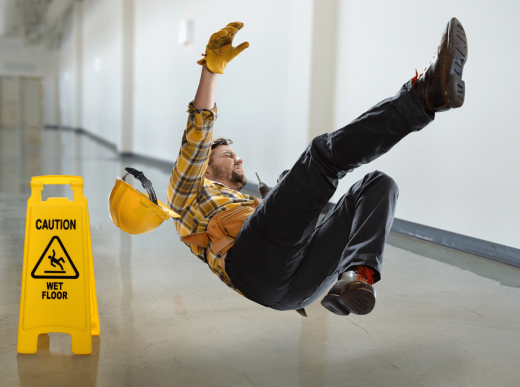
Book a Slip Resistance Test
Fill in the form below and we'll be in touch
Quantum Site Services LTD has more than 25 years of experience in the industry and we can proudly show off a range of our clients.









